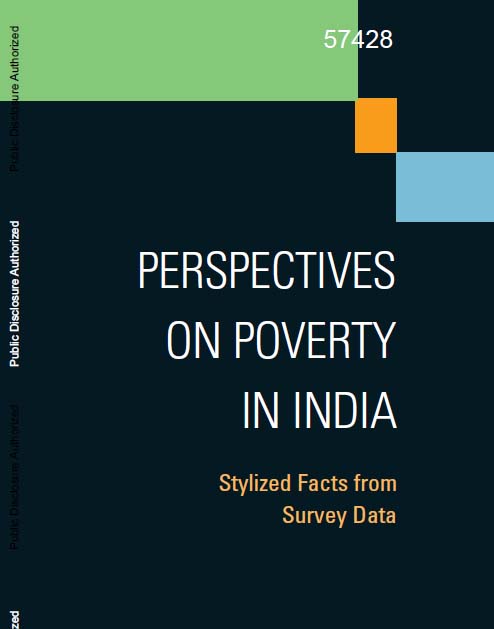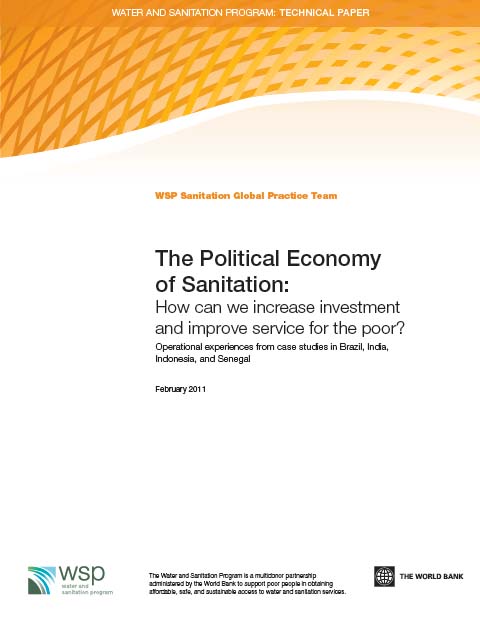/topics/lifestyle
Lifestyle
Draft guidelines for taking up works relating to access to sanitation facilities by Ministry of Rural Development - Request for comments by August 15, 2011
Posted on 09 Aug, 2011 11:15 PMThe Ministry of Rural Development, Government of India has developed draft guidelines expanding the scope of works under schedule 1 Para 1 (ix) of Mahatma Gandhi National Rural Employment Guarantee Scheme to include access to sanitation facilities. This has been prompted by demands from several States/quarters for ensuring sanitation facilities in rural areas with the main goal of ensuring a clean environment, thereby bringing about an improvement in the general quality of life and strengthening the livelihood base.
Rainfed agriculture - Meeting the challenges of food security in India – A paper in Current Science
Posted on 08 Aug, 2011 06:40 PMThe paper notes that there are large opportunities for gains from adaptation and new investments in water management for meeting the targets under the proposed National Food Security Act.
Establishment of missing stream link between the Markanda river and the Vedic Saraswati river in Haryana – A paper in Current Science
Posted on 05 Aug, 2011 04:11 PMThis paper in Current Science attempts to establish a missing stream link between the Markanda river and the Vedic Saraswati river in the plains of northern Haryana based on geoelectrical resistivity surveys. Resistivity surveys in the Gangetic Plains around Pehowa region in Haryana, have revealed different subsurface geological formations composed of fine, medium and coarse sand with gravel. Resistivity section between the lower part of the Markanda basin and the Saraswati river around Pehowa region indicates the presence of buried sand bodies connecting the two rivers.
Delhi Water Privatization - WASH News and policy update
Posted on 03 Aug, 2011 06:20 PMContent courtesy: India WASH Forum
A kalyani brought to life in Mulbagal, Karnataka: An Arghyam initiative
Posted on 27 Jul, 2011 05:58 PMGuest post by Manjunath Prasad
Perspectives on poverty in India - Stylized facts from survey data – A report by World Bank
Posted on 26 Jul, 2011 04:38 PM It produces a diagnosis of the broad nature of the poverty problem and its trends in India, focusing on both consumption poverty and human development outcomes.
It produces a diagnosis of the broad nature of the poverty problem and its trends in India, focusing on both consumption poverty and human development outcomes.
It also includes attention in greater depth to three pathways important to inclusive growth and poverty reduction harnessing the potential of urban growth to stimulate rural-based poverty reduction, rural diversification away from agriculture, and tackling social exclusion.
The political economy of sanitation - How can we increase investment and improve service for the poor? – A report by Water and Sanitation Program
Posted on 26 Jul, 2011 02:53 PM This global study attempts systematically to understand and thus help practitioners manage the political economy of pro-poor sanitation investments and service provision.
This global study attempts systematically to understand and thus help practitioners manage the political economy of pro-poor sanitation investments and service provision.
It aims to provide practical advice to multi-lateral agencies and sanitation practitioners to help them better manage stakeholder relations and effectively maneuver within the complex institutional relationships of the sanitation sector in order to enhance the design, implementation, and effectiveness of operations that provide pro-poor sanitation investments and services. The ultimate goal is to improve health and hygiene outcomes.
This study follows current approaches to political economy - interdisciplinary inquiry drawing upon social and political theory and economic principles - to understand how political actors, institutions, and economic processes influence each other. This study’s conceptual framework combines a diagnostic component with a typology of actions to help translate analytical findings into more effective support to operations and investments.
Guidelines of the Central Rural Sanitation Programme and Total Sanitation Campaign by the Department of Drinking Water and Sanitation (2011)
Posted on 25 Jul, 2011 07:30 PMThis document by the Department of Drinking Water and Sanitation deals with the guidelines of the Central Rural Sanitation Programme (CRSP) and Total Sanitation Campaign (TSC). India’s first nationwide programme of rural sanitation, the CRSP was launched in 1986, while TSC was launched in 1999 with the aim of ending open defecation.
Kailash sacred landscape conservation initiative - Feasibility assessment report by ICIMOD
Posted on 25 Jul, 2011 03:19 PM This publication by International Centre for Integrated Mountain Development (ICIMOD) deals with Kailash Sacred Landscape Conservation Initiative (KSLCI), a project that seeks to conserve and sustainably manage a highly unique and special landscape through the application of trans-boundary ecosystem management approaches.
This publication by International Centre for Integrated Mountain Development (ICIMOD) deals with Kailash Sacred Landscape Conservation Initiative (KSLCI), a project that seeks to conserve and sustainably manage a highly unique and special landscape through the application of trans-boundary ecosystem management approaches.
This region, like much of the rest of the Hindu Kush-Himalayas, faces many challenges, not the least of which are global warming, globalisation and environmental degradation. The Kailash region is considered sacred to five major religions and to a large number of people in Asia and throughout the world. This area is historically, ecologically, and culturally interconnected and is the source of four of Asia’s most important rivers.
The KSLCI is an attempt on the part of the three neighbouring countries of India, China and Nepal to join hands to help preserve the unique biological diversity, the many ecosystem goods and services, and the value-based cultural heritage of one of the most revered and sacred landscapes in the world.
Fazilka citizens protest against planned encroachment on ecosensitive Badha lake wetland by Punjab Urban Development Authority (PUDA)
Posted on 21 Jul, 2011 04:16 PMForwarded to the portal by: Graduates Welfare Association, Fazilka





